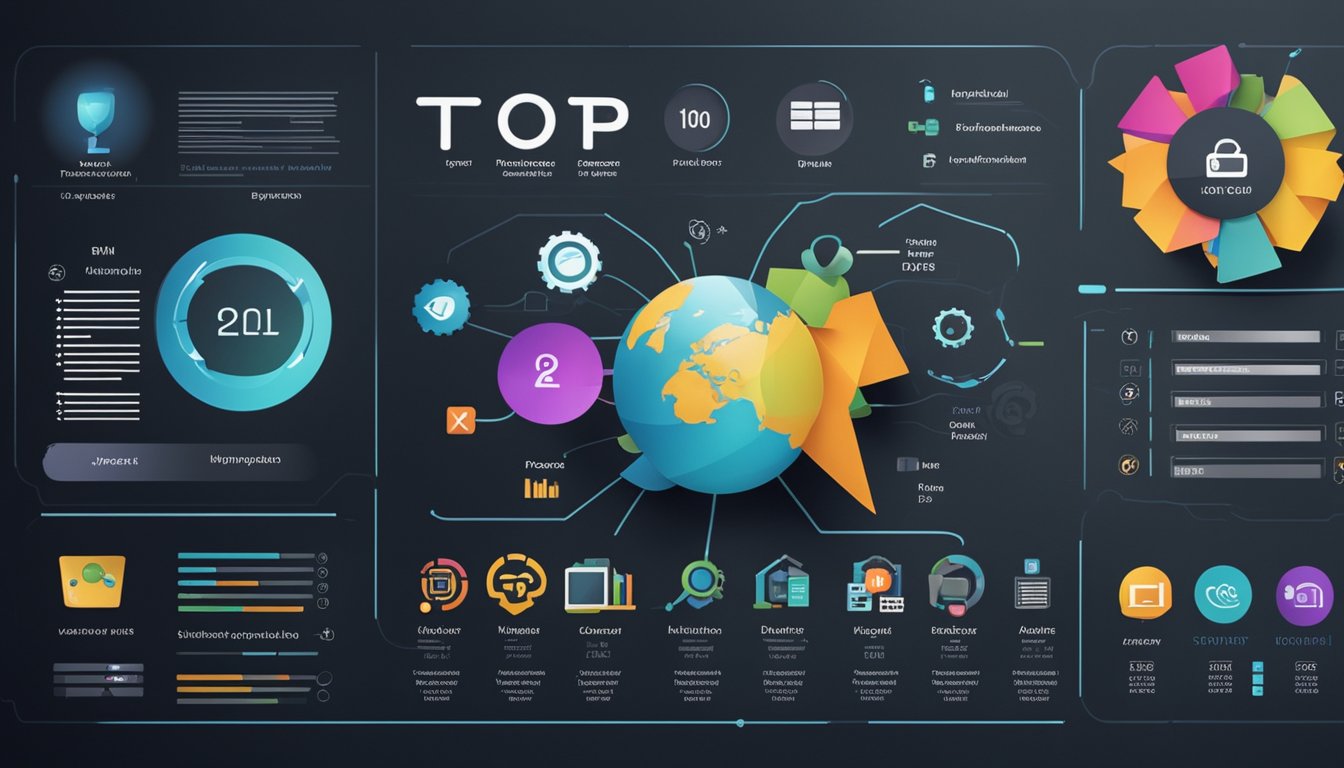Top 10 Software Integration Tools for Small Businesses Streamline Your Operations
As a small business owner, you know that time is money. You need to streamline your business processes to ensure maximum efficiency, and that's where software integration tools come in. By connecting different applications and systems, integration tools allow you to automate repetitive tasks and reduce errors, freeing up your time to focus on growing your business.

But with so many integration tools available, how do you know which one to choose? In this article, I'll introduce you to the top 10 software integration tools for small businesses. These tools have been carefully selected based on their ease of use, affordability, and ability to integrate with popular business applications. Whether you're looking to connect your CRM with your email marketing platform or automate your accounting tasks, there's a tool on this list that can help you achieve your goals.
Key Takeaways
- Software integration tools can help small businesses streamline their processes and increase efficiency.
- The top 10 software integration tools for small businesses have been selected based on ease of use, affordability, and ability to integrate with popular business applications.
- These tools can help you automate repetitive tasks, reduce errors, and free up your time to focus on growing your business.
Understanding Software Integration Tools

As a small business owner, you may find yourself using multiple software applications to manage different aspects of your business. However, these applications may not always communicate with each other, causing a breakdown in information flow and workflow. This is where software integration tools come in.
Software integration tools are designed to connect different software applications and systems, allowing them to share information and work together seamlessly. This can help streamline your organization's workflow, reduce errors, and improve productivity.
There are several types of software integration tools available, including:
-
APIs (Application Programming Interfaces): APIs allow different software applications to communicate with each other by providing a set of rules and protocols for exchanging information.
-
Middleware: Middleware is software that acts as a bridge between different software applications, allowing them to communicate and share data.
-
ETL (Extract, Transform, Load) Tools: ETL tools are used to extract data from different sources, transform it into a common format, and load it into a target system.
-
ESB (Enterprise Service Bus): ESB is a software architecture that provides a centralized platform for integrating different software applications and systems.
When choosing a software integration tool, it's important to consider your organization's specific needs and requirements. Some factors to consider include:
-
Compatibility: Ensure that the integration tool is compatible with the software applications and systems you use.
-
Ease of use: Look for an integration tool that is easy to set up and use, with a user-friendly interface.
-
Customization: Consider whether the integration tool can be customized to meet your organization's specific needs.
-
Cost: Evaluate the cost of the integration tool and whether it provides a good return on investment.
Overall, software integration tools can help small businesses improve their information flow, streamline workflow, and increase productivity. By choosing the right integration tool for your organization, you can ensure that your software applications and systems work together seamlessly.
Top 10 Software Integration Tools for Small Businesses

As a business owner, I know how important it is to have software integration tools that can help manage different aspects of my business. In this section, I will be discussing the top 10 software integration tools for small businesses.
On-Premise vs Cloud Applications
When it comes to software integration, there are two main types of applications: on-premise and cloud-based. On-premise applications are installed on local servers and are managed by the company's IT department. Cloud-based applications, on the other hand, are hosted on remote servers and accessed through the internet.
Cloud-based applications are becoming more popular because they offer greater flexibility, scalability, and cost-effectiveness. However, on-premise applications may be preferred in cases where there are specific security or compliance requirements.
Data Integration and Management
Data integration and management are critical components of software integration. Businesses need to be able to integrate data from different sources, such as databases, applications, and APIs, in real-time. This requires tools that can handle data transformation, merge, and join operations.
Jitterbit and ClickUp are two examples of data integration tools that can help businesses manage data integration and management. Jitterbit offers cloud data integration and real-time data synchronization, while ClickUp provides data connectors for popular data sources and databases.
Workflow and Task Management
Workflow and task management are important for businesses that need to manage complex projects and processes. Workflow automation tools can help businesses streamline their workflows and automate repetitive tasks.
Trello and ClickUp are two examples of project management software that offer workflow and task management features. Trello is a popular tool for managing tasks and projects, while ClickUp provides advanced workflow automation features.
Customer Relationship and Payroll Management
Customer relationship management (CRM) and payroll management are critical components of any business. CRM software helps businesses manage their relationships with customers, while payroll software helps manage employee payroll and benefits.
FreshBooks is an example of a CRM software that can help businesses manage customer relationships. It offers features such as invoicing, time tracking, and project management. For payroll management, Gusto is a popular tool that can help businesses manage employee payroll and benefits.
Security and User Interface
Security and user interface are important considerations when choosing software integration tools. Businesses need to ensure that their data is secure and that their employees can easily use the tools.
One example of a software integration tool that offers both security and user interface features is Okta. It provides secure identity management and access control, as well as a user-friendly interface for managing user accounts and permissions.
In conclusion, software integration tools are essential for small businesses that want to streamline their operations and improve productivity. By choosing the right tools, businesses can manage data integration and management, workflow and task management, customer relationship and payroll management, and ensure security and user interface.
Frequently Asked Questions

What are some popular software integration tools for small businesses?
There are several popular software integration tools available for small businesses. Some of the most commonly used integration tools include Zapier, SnapLogic, Jitterbit, Integromat, and Celigo Integrator.io. These tools allow businesses to connect different applications and automate workflows, making it easier to manage data and streamline processes.
How do I choose the best integration tool for my small business?
When selecting an integration tool for your small business, it is important to consider your specific needs and requirements. Some key factors to consider include the size of your business, the number of applications you need to integrate, and your budget. It is also important to choose a tool that is user-friendly and offers good customer support.
What are the key features to consider when selecting a software integration tool?
Some key features to consider when selecting a software integration tool include ease of use, flexibility, scalability, and security. It is important to choose a tool that is easy to set up and use, and that can be customized to meet your specific needs. Scalability is also important, as your business may grow and require additional integration capabilities in the future. Finally, security is a critical consideration, as you want to ensure that your data is protected and secure.
What are the benefits of using integration tools for small businesses?
Using integration tools can provide several benefits for small businesses, including increased efficiency, improved data accuracy, and streamlined workflows. Integration tools can also help businesses save time and money by automating repetitive tasks and reducing manual data entry. Additionally, integration tools can help businesses gain insights into their data, allowing them to make more informed decisions.
Are there any free software integration tools available for small businesses?
Yes, there are several free software integration tools available for small businesses, including IFTTT, Zapier, and Microsoft Flow. While these tools may have limitations in terms of functionality and integration capabilities, they can be a good option for small businesses with limited budgets.
Which software integration tools offer the best customer support for small businesses?
Several software integration tools offer good customer support for small businesses, including Zapier, Jitterbit, and Celigo Integrator.io. These tools offer a range of support options, including email and phone support, as well as comprehensive documentation and user guides. It is important to choose a tool that offers good customer support, as this can be critical in ensuring that your integration project is successful.









